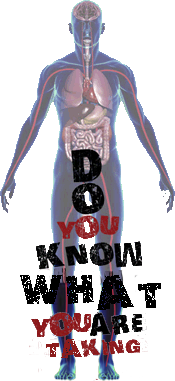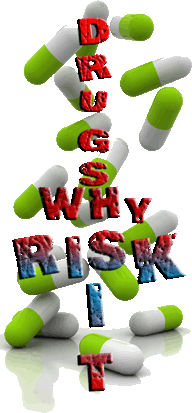Drugs and the law
 In addition to possession and dealing, it is also illegal to supply anyone with drugs, to produce drugs or to import or export drugs. It is also illegal to allow premises you use or occupy to be used for supplying drugs. If you are found with drugs in close proximity to a school or youth facility the courts will impose higher penalties.
In addition to possession and dealing, it is also illegal to supply anyone with drugs, to produce drugs or to import or export drugs. It is also illegal to allow premises you use or occupy to be used for supplying drugs. If you are found with drugs in close proximity to a school or youth facility the courts will impose higher penalties.
It is common for drug use to increase and as dependency becomes more problematic the user may not be able to work and social security benefits may not provide enough income to support the drug use. Money may need to be borrowed and if repayments can't be met, this brings other problems.
If drug use becomes problematic, some drug users may even resort to crime, such as burglary, to find items that can be stolen and sold to others to raise money to buy more drugs. Other drug users may resort to more serious crimes such as robbery, theft, extortion - anything to secure money to buy drugs.
Some drug users then get invovled in dealing in drugs, at which point, if a drug user is caught by the police the sanctions by the court increase.
It is important to realise that getting involved in drugs can bring many other problems that can affect your health, your financial wellbeing and where you live.
How drugs are classified
Drugs are put into one of three categories, according to how dangerous they are. It’s worth remembering that different drugs affect people in different ways. Just because a drug is not ‘Class A’, it can still be very dangerous.
The three categories of drugs are Class A, Class B and Class C.
1. Class A drugs are drugs that have the most harmful effects. These drugs include heroin, cocaine, ecstasy and LSD.
2. Class B drugs are considered less dangerous than Class A ones but they can still be harmful. These include speed,cannabis, mephedrone and some amphetamines.
3. Class C drugs are considered less dangerous to the user than Class A and Class B drugs but they are still illegal.These include ketamine, GHB and some tranquilisers.
In addition to these three classifications a further new classification called “temoporary banning orders” has been introduced to tackle the issue of “legal highs” or the new chemical substances that are increasingly been found. Produced by chemical factories the chemical composition of these new substances changes more quickly than the legislation and so these new orders have been introduced to combat these new drugs.
Go to top of page
Possessing drugs
If you have been found in possession of drugs, you'll be arrested. All the drugs found in your possession will be taken away from you and destroyed.
If you're caught with drugs in your bag or in your pocket, you may be charged with possessing (or possession with intent to supply - a much more serious offence) an illegal substance, whether it's yours or not. If you're under 17, the police are allowed to tell your parent, guardian or carer that you've been caught.
The punishment that you receive will depend on the class of drug that the police found, the quantity of drugs found, where you and the drugs were found (if found close to a school or young persons youth club, the court will give a higher sentence) and your personal history (previous crimes, but importantly, any previous drug offences).
If you are under 18 years old and were found with a Class C drug, and depending on the circumstances, it should be anticipated that you will receive a formal (recorded) warning and a police caution. You may also be referred to the police Youth Diversion Scheme. If over 18 years it should be anticipated that you will receive a caution and further action will depend upon the decision reached by the Public Prosecution Service on whether to prosecute.
If you're found with a Class A or B drug, or if you have a history of drug offences, you will be prosecuted and this opens a new range of punishments available.
The maximum sentences for possession of each class of drug are:
1. Up to seven years in prison or an unlimited fine (or both) for a Class A drug
2. Up to five years in prison or an unlimited fine (or both) for a Class B drug
3. Up to two years in prison or an unlimited fine (or both) for a Class C drug
These sentences can increase a lot more if you are found to be dealing in drugs or supplying them - even if it's just to friends or no money changes hands.
Go to top of page
 Is cannabis still illegal?
Is cannabis still illegal?
Yes. Cannabis is still illegal, no matter how much or little you have in your possession. From January 2009 the Government changed the classification of cannabis from Class C to Class B.
As a result the maximum penalty for possession of cannabis as a Class B drug has now increased from two to five years imprisonment. A magistrates' court can also impose a fine of up to £2,500 (an increase from £1,000).
If the Public Prosecution Service decides to prosecute you for supplying or producing an illicit drug the maximum prison sentence remains at 14 years.
Over the last few years the cannabis factory has been a new development in Northern Ireland. This is an important issue for landlords – even if it is only one house that they are renting out. There is a clear message that you should regularly check your property to ensure that it is not being used as a cannabis factory.
Go to top of page
Legal Highs
The term “Legal High” is misleading. Even if it isn’t an illegal substance under the Misuse of Drugs Act, most are already illegal to sell, supply or advertise for human consumption under the Medicines Act. This is why they are often sold by “head shops” or over the internet as “plant food”, “incense” or “bath salts”.
They are sold under a wide variety of names and you have no way of knowing what exactly is in them. Analysis of seized samples show that “legal highs” may already contain an illegal substance, which means you could end up with a criminal record for possessing something you thought was legal.
Even if some of these substances may not be illegal it doesn’t mean they are safe, many of these substances are new and have never been tested properly. They could have very serious side effects and could cause long term damage to your health. It is also important to note that the purity levels of many illicit substances found in Northern Ireland are extremely low. This means that they are “filled out” with all sorts of other substances
Any new substance can now be banned for a maximum of 12 months while it is being analysed for the health harms that it may cause, if consumed. During this time it will be like any other illegal substance and if you possess and supply it, then you will be prosecuted.
Go to top of page .
